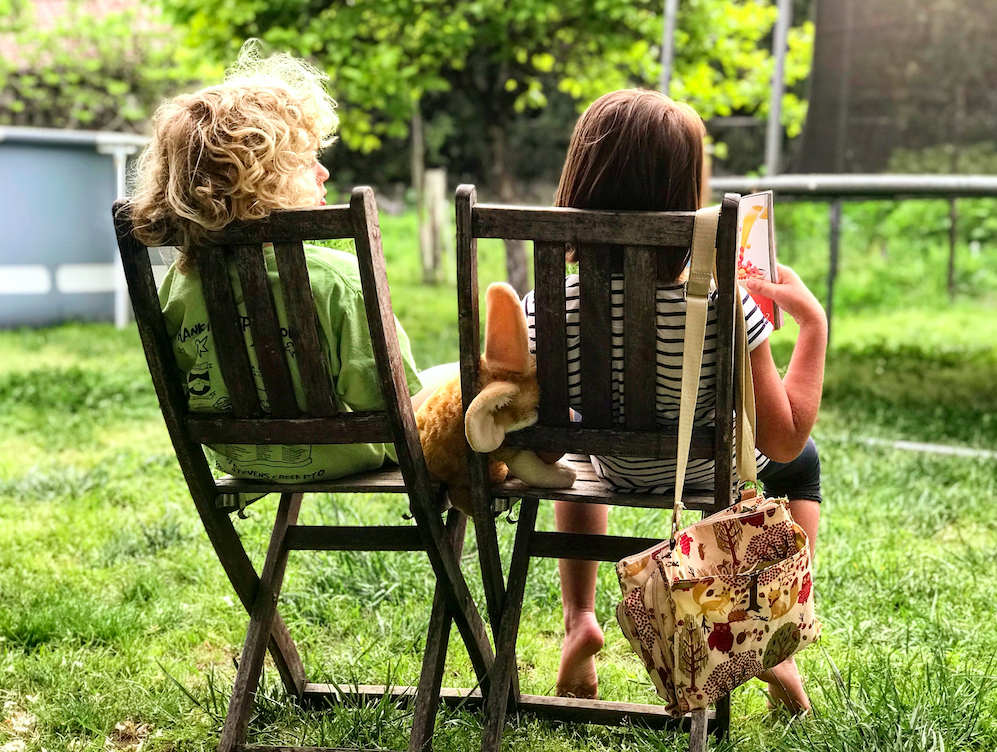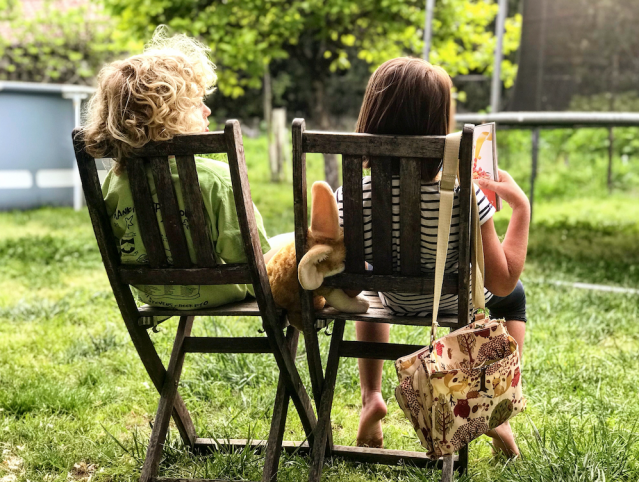
Let’s face it…life is stressful! Many of us have become masters of the art of multitasking. At the end of the day, sometimes we can’t even imagine how we got everything done and kept everyone alive and well.
With stress, brings anxiety. The “worry monster” begins to creep up inside our brains about what tomorrow may bring or what the future holds for our family. The way we manage stress as parents directly impacts the way our children learn to manage stressors.
Control Affects Anxiety
A feeling of lack of control sends our anxiety into a tailspin. When we feel we don’t have control over things in our life then we get anxious. Children are the same. If you think about it, children really don’t have control over much in their lives. The adults make the majority of decisions for them. We think that we know what’s best for them.
The Impact from Today’s Society
Our children are experiencing many stressors in today’s world beginning at an early age. We tend to have the mentality that more is better. We are enrolling our children in as many activities as we can to make them “well rounded” individuals. Personally, my husband and I are raising girls that are entering high school this year. We are finding that the academic and extracurricular expectations for them are overwhelming. We have the lingering thought of…“Are they doing enough to get into a good college?” If we take a step back and look at our children’s daily schedules, they are busier than we are! We tend to forget that downtime can be beneficial. When we provide our children with time to unwind, we are fostering other important attributes to come out such as self-care, exploration, and creativity.
Warning Signs of Anxiety
Anxiety is a normal part of childhood. Anxiety can be useful at times since it makes us more assertive and aware of our surroundings. The issue occurs once anxiety begins to negatively impact our ability to function in our everyday lives. Anxiety Disorders are among one of the most common mental, emotional, and behavioral problems to occur during childhood and adolescence. Children with a diagnosed Anxiety Disorder experience fear, nervousness, and shyness to a degree where they begin to avoid places and activities.
Here are some warning signs to look for:
-
Preoccupation with worries and fears
-
Avoidance of social contact
-
Difficulty sleeping
-
Loss of appetite
-
Physical expression of feelings (i.e.: emotional outbursts, aggression)
-
Psychosomatic symptoms (i.e.: complaining of physical ailments)
-
Retreating/shutting down
What Can We Do?
The main thing we can do is pay close attention to how we manage our own stress. Notice how you internally and externally express yourself when you are faced with a major stressor. Children look to the adults in their life for guidance when they are faced with a stressor. Remember, the energy we put out (whether positive or negative) directly impacts the energy we receive back. If our emotions are regulated, our children’s emotions are more likely to be regulated as well. In some situations, we need to act like a duck in the water where you are calm and collected on the surface even if your legs are freaking out below the surface. It’s all about the “game face.” Remember that you can’t take care of anyone else unless you take care of yourself at first. Visualize the safety video played before an airplane flight…you first put the overhead mask on yourself before you assist with putting it on someone else.
Here are some things to remember:
-
Give your child as many choices as possible (it’s their life so let them have some freedom in what activities they choose to participate in)
-
Let your child choose activities they are passionate about
-
Power struggles are not very relaxing
-
Take some time to lower your own distress level before you intervene
-
Begin with a conversation that validates your child’s feelings
-
When your child begins to communicate, don’t interrupt
-
Maintain a positive and calm attitude
-
Be nonjudgmental regarding your child’s thoughts or feelings
-
Focus on one thing at a time
-
Concentrate on the anxious emotions, rather than any outward behavior the child previously exhibited
-
Recognize and praise small accomplishments
-
Don’t punish mistakes or lack of progress
-
Be flexible, but try to maintain a normal routine
-
Plan for transitions and provide a heads up for any changes











